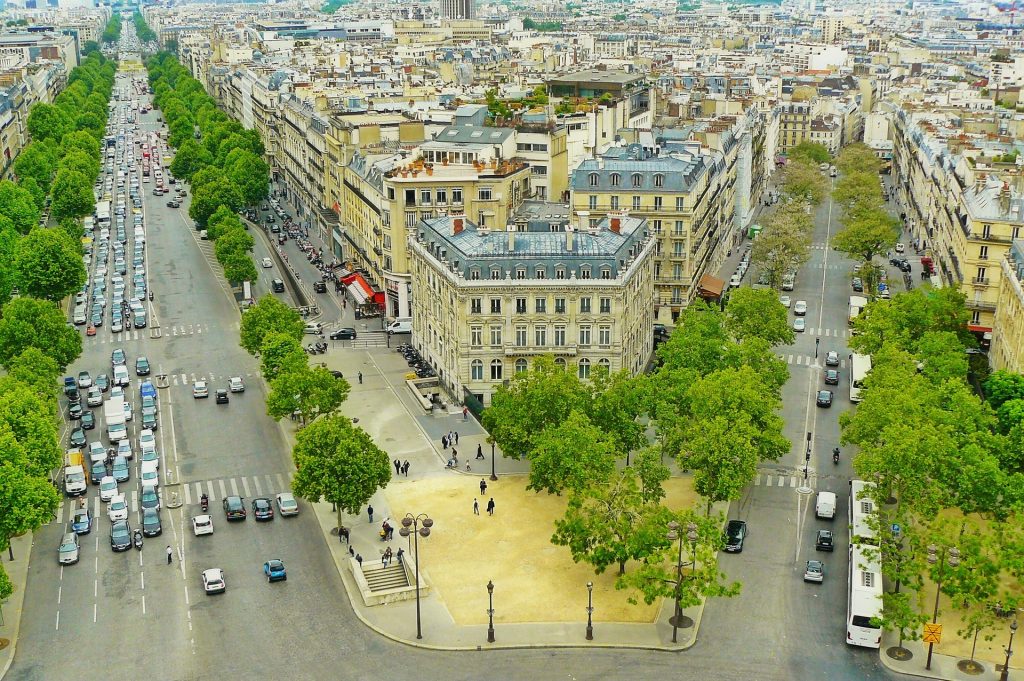Paris to Ban Through-Traffic in City Center
All the city news you can use.
Every day at The Overhead Wire we sort through over 1,500 news items about cities and share the best ones with our email list. At the end of the week, we take some of the most popular stories and share them with Urban Milwaukee readers. They are national (or international) links, sometimes entertaining and sometimes absurd, but hopefully useful.
Why don’t Denver’s rail lines go to neighborhoods: In 2004 the Denver region voted to build a network of rail lines to connect the region. Many residents were excited about the project but almost two decades later, those that supported the expansion are not using the system. If done today, it probably wouldn’t be set up the same way with lines on freight rights of way serving suburban to city commutes. (Nathaniel Minor | Denverite)
A gas tax trade conflict: A Washington State proposal to tax refined gasoline sent to other states in order to fund a state infrastructure bill is getting push back. States that would be affected including Oregon and Alaska are already drawing up ways to retaliate with other taxes on goods such as fresh fish and could start a northwestern state trade dispute. The governor argues that because the state bears the climate impacts of the refining, other places should share the social cost. (Daniel C. Vock | Route Fifty)
The science of recent bookstore design: For independent book stores there is a certain design that allows for discovery and is inviting to readers. This is something the larger book chains often missed. If you know what you want you can find it online easily, but if you aren’t sure, there’s nothing like a well designed independent bookstore with fun shelves, good lighting, and staff recommendations. (Lyndsie Manusos | Book Riot)
Paris plans to limit cars for 2024: The City of Paris France will ban non-essential traffic through the city center over the next two years in time for the 2024 Olympics. The low traffic area will cover 5.4 square miles and allow residents, transit vehicles, and people with disabilities. However through traffic in the city center will be fined if drivers are caught by cameras or police checkpoints. (Feargus O’Sullivan | Bloomberg CityLab) (Florent Helaine | Le Parisien)
Quote of the Week
The narrative is that highways that were built ruined cities. But no, it’s that highways that were planned ruined cities. There is no highway, but there certainly is a scar.
–Emily Lieb, a Seattle-based historian in the Los Angeles Times discussing the legacy of the scars left by planned highways.
This week on the podcast, we’re joined by Dr. Asal Bidarmaghz, a lecturer in geotechnical engineering at the University of New South Wales in Sydney who discusses underground infrastructure and its importance for the future of cities, including underground climate change, coordination among long-term projects, and appropriate land use.
Want more links to read? Visit The Overhead Wire and signup.
Urban Reads
-
Congestion Pricing Cuts Air Pollution in New York City
 Dec 14th, 2025 by Jeff Wood
Dec 14th, 2025 by Jeff Wood
-
We Think We Love to Drive. But Do We Really?
 Dec 7th, 2025 by Jeff Wood
Dec 7th, 2025 by Jeff Wood
-
Can Scott Wiener Tackle America’s Housing Crisis?
 Nov 23rd, 2025 by Jeff Wood
Nov 23rd, 2025 by Jeff Wood





















